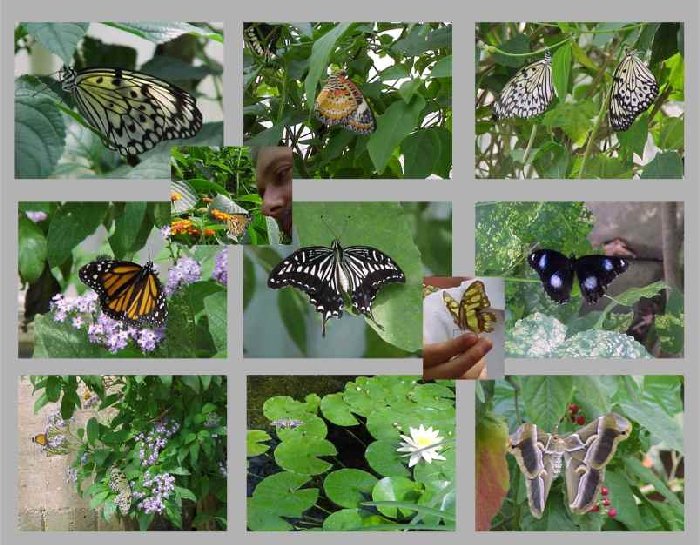 In most monastic settings the most important jobs are given to the least important
people. Gardening is the personification of Buddhism in action:
In most monastic settings the most important jobs are given to the least important
people. Gardening is the personification of Buddhism in action:
- 1. The Soil represents the fertile ground of the Buddha Mind.
- 2. The Sangha is in the community of plants
- 3. The Dhamma as the expression of wisdom is the collective environment
we call The Open Temple of Buddha Nature - The Garden.
 The various practices of Buddhism are exemplified in our garden practice.
The Buddha Nature that permeates all things is both still, being ever
present, and also totally empty; void.
The various practices of Buddhism are exemplified in our garden practice.
The Buddha Nature that permeates all things is both still, being ever
present, and also totally empty; void.
 If we see the garden as the mind then:
If we see the garden as the mind then:

- 1. Paths are represent the clear ways to enlightenment.
- 2. The condition of the soil represents the state of our Karma.
- 3. The plantings represent both fruitful and blossoming ideas, and perennial and dying concepts.
- 4. Seasons represent the fluctuations of the mind.
 Peace and serenity are always associated with gardening and when we walk
with intent (walking meditation) we should be aware of those on our
journey who need our attention, whether self or other as personified
in the garden.
Peace and serenity are always associated with gardening and when we walk
with intent (walking meditation) we should be aware of those on our
journey who need our attention, whether self or other as personified
in the garden.
 Mindful weeding is attention with purpose and this will help us clear our own overgrown patches . . .
Mindful weeding is attention with purpose and this will help us clear our own overgrown patches . . .
 All monastic gardens are an expression of the innate wisdom of the community and visitors. What you see is a reflection of yourself.
All monastic gardens are an expression of the innate wisdom of the community and visitors. What you see is a reflection of yourself.
 We care for the garden through the practice of Mettaa - not just for others but for each plant and rock. If something is out of place we
move it. If a plant cries out for attention, we give it - without fuss, without demand for reward. It is our sacred duty to give help
before it is asked for and to demand no recompense.
We care for the garden through the practice of Mettaa - not just for others but for each plant and rock. If something is out of place we
move it. If a plant cries out for attention, we give it - without fuss, without demand for reward. It is our sacred duty to give help
before it is asked for and to demand no recompense.
 For the gardens will grow, will develop in accordance with those who aid and care. What do we care for but our many Buddha selves in the environment of the garden?
For the gardens will grow, will develop in accordance with those who aid and care. What do we care for but our many Buddha selves in the environment of the garden?
 The 4 Noble Truths of Gardening
The 4 Noble Truths of Gardening

1. All gardens need perfecting
 Change, transition and evolution always exist in the garden. The imperfection moves towards a further impermanence that again needs attention.
Change, transition and evolution always exist in the garden. The imperfection moves towards a further impermanence that again needs attention.
2. The reason why
 The cause of this continual dissatisfaction is the craving for a better environment. The desire for an unattainable goal, the creation of
paradise or nirvana.
The cause of this continual dissatisfaction is the craving for a better environment. The desire for an unattainable goal, the creation of
paradise or nirvana.
3. The way to improve
 By understanding the nature of this constant turmoil and need for further evolvement we see a means of satisfaction and acceptance open up.
By understanding the nature of this constant turmoil and need for further evolvement we see a means of satisfaction and acceptance open up.
4. The means to improve
 Understanding that perfection is unattainable but realisable, we implement the 8 fold path to come to terms with our own dissatisfaction, transforming
our lives and being through the practice of gardening . . .
Understanding that perfection is unattainable but realisable, we implement the 8 fold path to come to terms with our own dissatisfaction, transforming
our lives and being through the practice of gardening . . .
|





